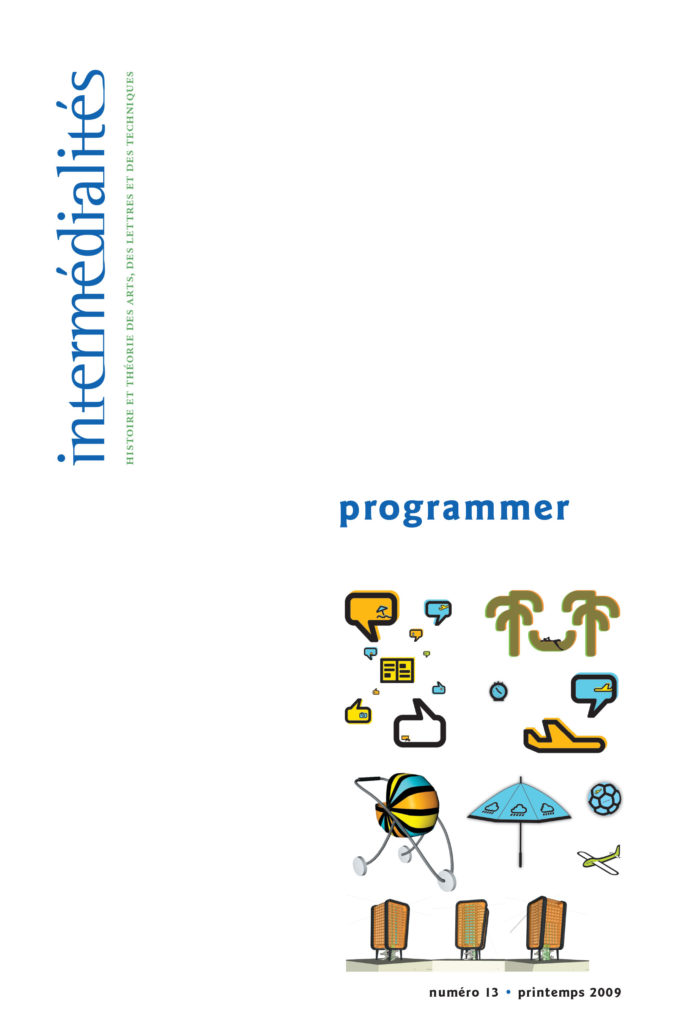
Number 13, printemps 2009
Guest-edited by
Suzanne Leblanc
This issue sheds light on those uses of the verb “to program” that differ from what we have been accustomed to by the precepts of computer science. Although they do not necessarily semantically exclude the computer, these uses point to meanings beyond the machine, they contextualize it or are part of a continuum where some of them predate the computer. Should we attribute to these alternative meanings the power of a paradigmatic break in terms of programming activity and computer functions? A shift can be observed from a reductionist position concomitant with the development of logical machines dedicated to achieving well-defined objectives towards a contextualist attitude better suited to our present circumstances. A “climate paradigm” that covers a plurality of phenomena, ranging from the weather to the stock market and its fluctuations, would better characterize the different aspects of the programming process. The following articles therefore evoke, through discussions of diverse programming practices, a profoundly modified relationship to matter. This is reflected in contemporary art and, more generally, in our understanding of our identities, our “artefactuality” and, with it, our own predictability.
